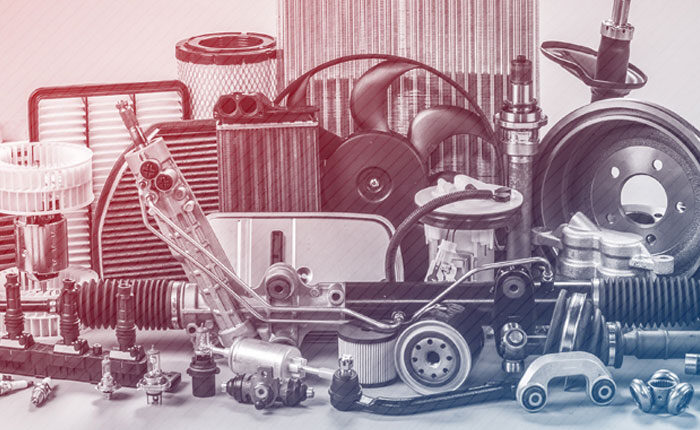The automotive industry is undergoing a significant transformation with the emergence of electric vehicles (EVs). This shift is not only changing the dynamics for original equipment manufacturers (OEMs) but also profoundly impacting Tier-I suppliers who provide components and equipment to these manufacturers. This article explores the emergence of EVs, their impact on Tier-I suppliers, the changes these suppliers need to implement, the challenges and opportunities they face, and the future outlook for the industry.
The transportation sector is experiencing a significant shift towards electric vehicles (EVs). Driven by environmental concerns, government regulations, and advancements in battery technology, EVs are poised to become a dominant force in the automotive industry. This transition presents both challenges and opportunities for Tier-I suppliers, the companies that design, manufacture, and supply critical components and equipment to original equipment manufacturers (OEMs).
Emergence of Electric Vehicles
Electric vehicles have moved from being a niche product to a mainstream automotive option, driven by technological advancements, environmental concerns, and supportive government policies. With the global push towards reducing carbon emissions and combating climate change, EVs are seen as a crucial component in achieving these goals. Governments worldwide are offering incentives such as tax breaks, subsidies, and infrastructural support to promote the adoption of EVs. Additionally, consumer preferences are shifting towards sustainable and eco-friendly alternatives, further boosting the EV market.
According to the International Energy Agency (IEA), the global stock of electric cars reached 10 million in 2020, representing a 43% increase over the previous year. Projections indicate that by 2030, EVs could account for nearly 30% of new car sales. This rapid growth is catalyzing a transformation within the automotive supply chain, particularly for Tier-I suppliers.
This surge is driven by several factors:
- Environmental Concerns: Transportation is a major contributor to greenhouse gas emissions. EVs offer a cleaner alternative, with zero tailpipe emissions.
- Government Regulations: Governments worldwide are implementing stricter emission standards and offering incentives for EV purchases.
- Technological Advancements: Battery technology has seen significant progress, with batteries offering greater range and shorter charging times.
- Consumer Demand: Consumers are increasingly recognizing the environmental and economic benefits of EVs.
Impact on Tier-I Suppliers
Tier-I suppliers, who provide major systems and components directly to OEMs, are experiencing significant changes due to the rise of EVs. The traditional internal combustion engine (ICE) vehicles require complex mechanical parts such as engines, transmissions, and exhaust systems. In contrast, EVs have fewer moving parts and rely more on electrical and electronic components, batteries, and electric drivetrains.
Reduced Demand for Traditional Components: The shift from ICE vehicles to EVs reduces the demand for certain mechanical components. Tier-I suppliers specializing in engine parts, fuel systems, and exhaust components are seeing a decline in demand.
Increased Demand for New Technologies: Conversely, there is a surge in demand for components specific to EVs, such as battery management systems, electric motors, power electronics, and advanced driver-assistance systems (ADAS). Suppliers must pivot towards these new technologies to stay relevant.
Innovation and R&D Investments: To keep up with the evolving market, Tier-I suppliers must invest heavily in research and development (R&D). Innovations in battery technology, lightweight materials, and energy-efficient systems are crucial for maintaining a competitive edge.

Changes Needed for Tier-I Companies
To thrive in the EV era, Tier-I suppliers must undergo significant transformations. The following changes are essential:
- Diversification of Product Portfolio: Suppliers need to diversify their product lines to include EV-specific components. This includes developing and manufacturing batteries, electric drivetrains, and advanced electronics.
- Strategic Partnerships and Collaborations: Forming strategic alliances with technology firms, battery manufacturers, and even OEMs can help suppliers access new technologies and accelerate their transition to the EV market.
- Reskilling the Workforce: The shift to EVs requires a different set of skills compared to traditional automotive manufacturing. Investing in training programs to reskill employees in areas like electronics, software development, and systems integration is vital.
- Sustainability Focus: Emphasizing sustainability in manufacturing processes and supply chains can enhance a supplier’s appeal to environmentally conscious OEMs and consumers.
Challenges: Navigating a Changing Landscape
The transition to EVs presents several challenges for Tier-I suppliers. The high upfront investment required for developing and manufacturing new EV components can be a significant financial hurdle, especially for smaller companies. Additionally, the influx of new players into the EV supply chain intensifies competition for contracts with OEMs. Furthermore, the rapid pace of technological advancements in EV batteries and powertrains necessitates continuous investment in R&D to stay relevant. Suppliers must also navigate potential supply chain disruptions for critical EV materials like lithium and rare earth elements, which can impact their production capabilities and cost structures.
Opportunities: Seizing the EV Revolution
Despite the challenges, the EV revolution presents exciting opportunities for forward-thinking Tier-I suppliers. The burgeoning EV market opens doors to new revenue streams and potentially higher profit margins compared to traditional ICE components. Early adopters who successfully develop innovative EV technologies can establish themselves as industry leaders and gain a competitive edge. This leadership can translate to long-term brand recognition and an enhanced reputation within the EV landscape. Additionally, the shift towards EVs presents an opportunity for Tier-I suppliers to showcase their commitment to sustainability, resonating with environmentally conscious consumers and aligning with global sustainability initiatives. By embracing the transformation and proactively addressing the challenges, Tier-I suppliers can carve a thriving path in the electric automotive future.
Future Outlook
The future for Tier-I suppliers in the EV market is promising, provided they can adapt to the changing landscape. The rapid growth of EVs is expected to continue, driven by technological advancements, regulatory support, and increasing consumer demand for sustainable transportation.
Tier-I suppliers that successfully transition to EV-specific components and technologies will find themselves in a strong position to capitalize on the growing market. Collaboration with OEMs, technology companies, and other stakeholders will be crucial in navigating the complexities of the EV ecosystem.
Moreover, the emphasis on sustainability and innovation will drive the industry forward. Suppliers that invest in green technologies and sustainable practices will not only contribute to a cleaner environment but also enhance their competitiveness in the market.
In conclusion, the emergence of electric vehicles is reshaping the automotive industry, bringing both challenges and opportunities for Tier-I suppliers. By diversifying product portfolios, forming strategic partnerships, reskilling the workforce, and focusing on sustainability, suppliers can successfully navigate this transformation and thrive in the EV era. The future is electric, and those who adapt will lead the charge.
Article by – Sudhanshu Nayak
 Sudhanshu Nayak, a dynamic mechanical engineer, is driven by a fervor for cutting-edge technologies like 3D printing, cloud manufacturing, and Industry 4.0. Sudhanshu Nayak, a mechanical engineer, gained invaluable firsthand experience with 3D printing during his tenure at innovative startups. His youthful energy fuels a deep expertise in social media marketing, technical content creation, and market research. Read More from Sudhanshu Nayak
Sudhanshu Nayak, a dynamic mechanical engineer, is driven by a fervor for cutting-edge technologies like 3D printing, cloud manufacturing, and Industry 4.0. Sudhanshu Nayak, a mechanical engineer, gained invaluable firsthand experience with 3D printing during his tenure at innovative startups. His youthful energy fuels a deep expertise in social media marketing, technical content creation, and market research. Read More from Sudhanshu Nayak


